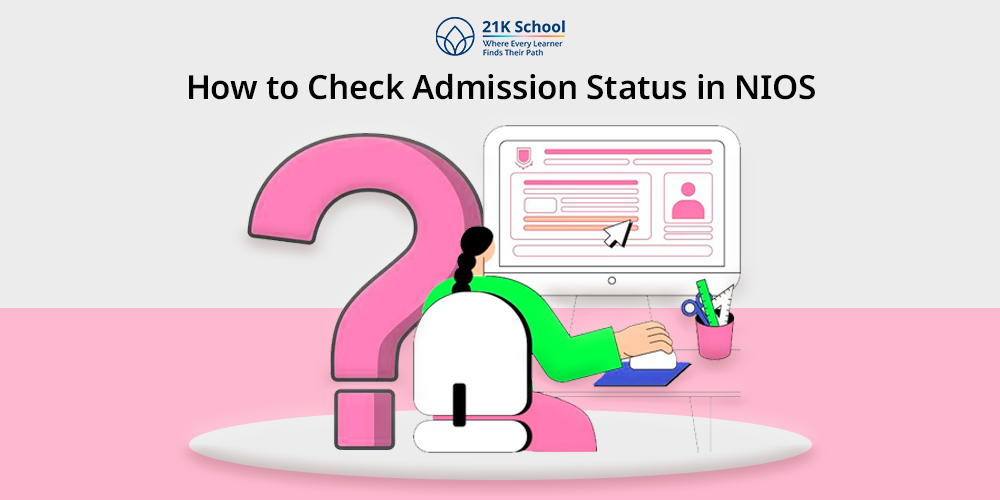
If your child loves to build something out of blocks or take apart a toy just to see how it works their interest speaks about future.
The curiosity in your kid is exactly what robotics programs are designed to nurture. With time learning is not limited to books.
Today, different subjects like robotics for kids isn’t just about playing with cool gadgets. It’s about teaching real-world skills in science, technology, engineering, and math (STEM).
It is a super fun and hands-on technique which kids love from a very young age. From making robots move to figuring out why a circuit isn’t working, they explore everything.
But do you know the best part? They don’t need any academic achievement for this. Explore what ate the benefits of robotics curriculum in school.
Let’s explore what makes robotics programs so powerful for children. Also why they are one of the best career options for your child’s future.
Table of Contents
Learning Robotics: Connect with Real-World Applications
Robotics has become integral to many core engineering courses and has also been helpful for various other scientific fields.
In recent years, not only for adults but different robotic kits for children have been created to engage them and help them nurture a scientific and curious attitude from a young age.
These child-friendly robotic kits provide something unique and new to play with and improve focus and their desire to learn and understand independently.
Here are the three essential things kids could know on their own from a robotic program:
1. Kids Learn To Nurture Their Creativity
A robotics program is a great way to nurture children’s creativity and intellectual ability.
By actually learning how to connect circuits, get the lights working, and make the robot move, kids learn the real-life application of math and science and use it productively while having fun.
- They learn to enjoy learning to create and build things, and they know to experiment on their own. Creativity allows them to develop critical thinking abilities, which are so necessary for their formative years.
- Instead of giving them a boring simple game, a robotics program will help them think more concretely by providing a challenge but not a difficult one.
- By channeling their creativity and engaging their developing mind with robotics, children get a better chance to understand and grasp learning and making new things.
- Robotic programs can also be changed based on the coding or with different types of circuits. In this case, kids showcase their creative talent by adding and implementing more complicated code or by adding more circuits for better and added functions.
- Schools provide robotics projects for students to encourage their creative thinking skills.
Thus from a simple robotic program, kids get a chance to improve their inquisitive nature by modifying and adding their own inspired elements.
2. Children Get More Improved Focus And Get Interested In Maths And Science
At an age when everything could distract them, kids require some dynamic equilibrium where they can get to learn and play together. This is why so many informative games are created.
The best way to engage a child’s attention and get them to learn and enjoy in a meaningful way is to provide a little challenge that keeps them occupied.
A robotics program can become helpful in an exciting way.
- When children realize they have to understand basic concepts to develop the robotic kit they got, they get more intrigued and try applying their knowledge.
- With a simple and easy understanding of basic science and math concepts to build something cool, kids start to get interested and delve deeper into various mechanical and scientific concepts. This, in turn, helps them to understand and build better robotic programs.
- Building a robotic program sharpens their mind for math, physics, basic engineering, and computer science.
- It has also been observed in growing children that games and innovative playing schemes related to building or creating something have helped in child brain growth and improved their thinking capacity.
Here, an automated program can show its immense benefits.
Not only do the children have to focus on understanding what they want to create, but they must also focus on properly connecting circuits and basic building blocks for it to be functional.
3. Kids Learn Problem-solving And Troubleshooting Skills
One of the things kids need to develop is critical problem-solving skills that will help them in every step of life.
Therefore, it is necessary for kids to learn and understand crucial concepts of basic subjects and know to handle problems clearly and concisely without panicking or relying on others.
In these situations, a good robotics program will encourage kids to think outside the box and solve their problems calmly and patiently.
- It is all too common in robotics, whether during circuit designing and connection or programming to face an error and become defunct.
- In these cases, the kids have to think wisely, understand where a mistake or problem has occurred, and learn to solve them.
Thus, while learning to handle various robotic programs, kids get to learn not only how to create, but even more importantly, how to repair and handle problem-solving.
Why is Robotics Important for Kids’ Education?
Learning robotics is essential for the development of various skills. Skills like problem-solving, critical thinking, and teamwork and innovation.
It is not only for academic achievements but a combination of fun with education which helps kids develop key 21st-century skills.
By adding robotics in education you can prepare kids for future careers in technology while nurturing a growth mindset.
Key points why is robotics important for kids’ education include:
- Computational Thinking:
Robotics helps kids in computational thinking by providing a hands-on, engaging platform to learn problem-solving, logical reasoning, and programming.
With this children can learn concepts with concentration which make learning effective.
- Better Collaboration And Communication Skills:
Learning robotics leads to better collaboration and improved communication skills in students.
It provides an environment where children can learn to collaborate effectively, share ideas, and work towards a common goal. This boosts their confidence and problem-solving techniques.
- Early Exposure To Logical Thinking And Design:
Early exposure to robotics is ideal to develop cognitive development od children like logical thinking, problem-solving, and critical thinking.
It is a tangible concept that needs logical thinking and design to build and innovate.
- Future-Ready Skills:
Future-ready skills means 21st-century skills like teamwork and creativity which motivates kids towards future career growth.
Whether your kid wants to become a coder in the future, scientist, robotics helps them have the skills to succeed and the curiosity to keep learning.
Conclusion: Ready to Explore Robotics
Learning robotics is one of the amazing ways where kids can learn just by building a simple robot. From boosting creativity and focus to learning how to solve real-world problems, robotics is today’s need.
Explore this powerful learning experience to get wide opportunities. It’s time to set the stage for future success for your kids in STEM and beyond.
So, think about introducing coding and robotics to your child. Because it is a fun and educational program ideal to start anytime, anywhere.
If your kid is new to robotics look for beginner-friendly robotics kits, sign up for an online course, or join a local workshop. There are many free websites for coding.
Understand the importance of coding in the 21st century education. This is your child’s gift of learning through innovation.
To know more how to proceed, 21K school is nurturing the next tech genius, call now to enroll!



